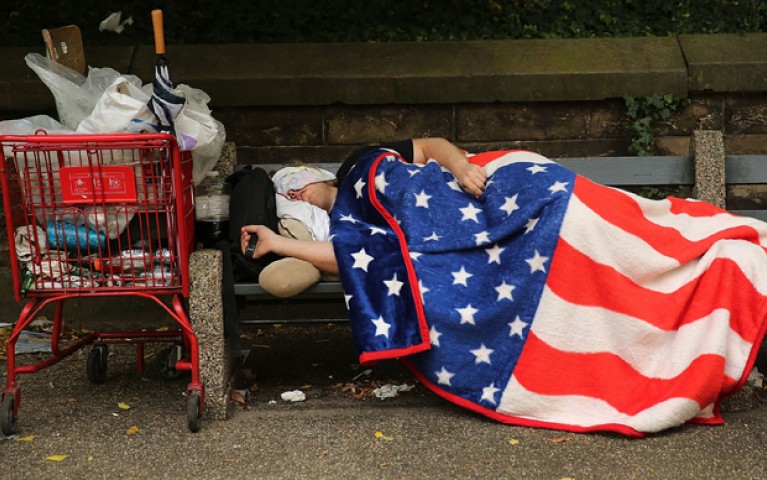Ground Zero: Philadelphia and Other Cities Report on Poverty, Homelessness, and Hope

The mayors' report on homelessness is a mixed bag--homelessness is rising in places, but some solutions are working.
The U.S. Conference of Mayors released its end-of-year report on Hunger and Homelessness six weeks ago, highlighting the state of poverty and homelessness. The report maps trends in 25 cities whose mayors serve on the conference’s Task Force on Hunger and Homelessness. This includes Mayor Nutter of Philadelphia. A number of cities report that on their own municipal ground zero, demands for emergency food and affordable housing are increasing.
New perceptions of exactly who is homeless emerged in these city profiles. More than one in four persons without homes are mentally ill, and one in five is physically disabled. Almost one in five is employed. One in eight is a veteran. Child homelessness is at an all-time high.
Seventy-one percent of those cities saw an increase in requests for emergency food assistance, and 43 percent saw an increase in the number of families experiencing homelessness. One in five people who needed food assistance did not receive it due to insufficient city resources and plummeting federal emergency food funding.
Philadelphia reported that a whopping 48 percent of people needing housing were not able to be housed due to a lack of affordable housing. At the same time, our city reported some positive gains. Veterans experiencing homelessness decreased by 19 percent, and the city has plans to connect people with a wide range of food resources in their neighborhood. City officials, advocates, and service providers are working hard to streamline multiple, complicated points of access to affordable housing into one single-entry system.
The report does not mask the fact that larger forces of wealth polarization, growing poverty, and job scarcity balloon the numbers of Americans who are hungry or lack adequate housing. But the mayors of these cities stand by a conviction: that homelessness is a problem we know how to solve. We simply need to allocate the mix of federal, state, and local resources to do it.
Meanwhile, and not unrelated: Just weeks after the U.S. Conference released its report, the nonprofit Oxfam released its annual survey of wealth and poverty worldwide. It found that 80 billionaires together hold more wealth than the bottom 50 percent of the entire human population. Only four years ago, 385 people held that much wealth, indicating a dangerous (not to mention obscene) rise in wealth polarization.